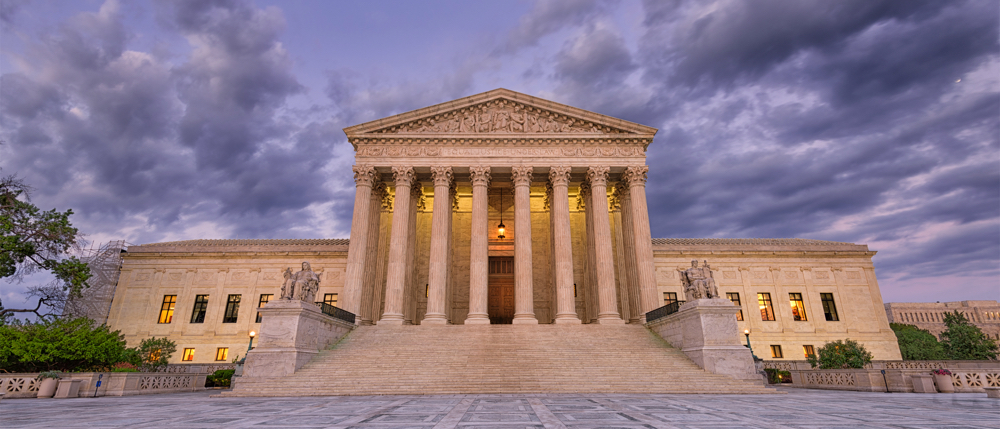
27 Oct SUPREME COURT PRIMER AND THE 2021-22 TERM

Margaret A.M. Heine
is the principal counsel at Heine Law Group in Fullerton, California. She is licensed in California and Washington and has authority to practice before the Supreme Court of the United States and the United States Court of International Trade.
Her practice includes estate planning, wills, trusts, and probate as well as business, real estate, and civil litigation. Email: nbylegas@gmail.com or visit company website www.margaretamheine.com.
SUPREME COURT PRIMER AND THE 2021-22 TERM
The 2021-2022 of the Supreme Court began October 4, 2021. They have 62 cases on the docket, while some are carryovers from the 2020-2021 session. 3 of the cases have been decided by the Court without any oral argument.
What is the impact of the Supreme Court on matters in California? Not only does the Supreme Court interpret the Federal Constitution and the legality of laws passed by Congress, but it protects the rights of individuals in any state to assure that State Laws do not run afoul of the Federal Constitution as well.
According to Ballotpedia, since 2007, the Supreme Court has reversed lower court decisions 70.7% of the time. They affirmed lower court decisions just 28.5% of the time. This makes sense when you put the Court’s schedule in perspective. Application is made to the Supreme Court to have a case heard after it has gone through the entire legal process in the State where the dispute is arising. Basically, there was a trial court decision, followed by an appeals court decision, and then a Supreme Court or highest court of that jurisdication decision. Only after these legal challenges can an application for review be brought to the Supreme Court. Every application is not granted. The Court tends to grant applications that involve significant rights under the constitution. If the Court is taking up the case, it is most likely that they want to hear about and address the legal positions involved.
Between 2007 and 2021, the Supreme Court heard more cases from the Ninth Circuit than any other circuit. They heard over 200 cases from the Ninth Circuit, which is primarily the western states: Alaska, Arizona, California, Hawaii, Idaho, Montana, Nevada, Oregon, Washington, and Guam.
In the current 2021-2022 docket, there are 17 cases being heard from the Ninth Circuit.
It is an interesting aside to see how the court is made up. The court’s nine justices come from only 3 law schools—4 from Yale, 4 from Harvard, and 1 from Notre Dame. 5 justices are from the East Coast, 2 justices are from the South (Georgia and Louisiana), and 2 from the West (California and Colorado). There are no Supreme Court justices from the Midwestern states.
A total of 5 presidents have appointed the current justices. W. Bush appointed 2 justices; Obama appointed 2 justices; H.W. Bush and Clinton each appointed 1 justice, and Trump appointed 3 justices.
The currently longest serving judge on the court is Associate Justice Clarence Thomas who was appointed July 1, 1991.
Some cases to watch this term are 2 cases regarding Indian Tribal rights, Ysleta del Sur Pueblo v. Texas, regarding gambling on Indian reservations, and Denezal v. U.S. regarding the potential for double jeopardy between criminal charges on a state level and a tribal level.
The court will be continuing to hear cases about vaccine mandates and COVID related matters, which will hopefully be fewer and fewer as the pandemic winds down.
Mississippi’s Gestational Age Act (HB1510, Code 41-41-19) along with the Texas abortion law (SB8) will be hotbeds of controversy for the Court. Mississippi’s law sets viability of the fetus ages and other criteria for abortions that in essence prohibit abortions after 15 weeks, with a few very limited exceptions. The case of Dobbs v. Jackson Women’s Health Organization sets the constitutionality of the law before the Court while relying on Roe v. Wade. The Texas abortion law, essentially bands abortions after 6 weeks, with no exceptions, Mississippi is to be heard on December 1, 2021.
A very interesting case will be CVS Pharmacy v. Doe. CVS instituted a policy that in order to get some higher priced prescriptions that the MAIL ORDER option for renewal of medication was the only option which would be granted “in-network” pricing. They were using this policy for many chronic illness medications. DOE defendants in this case were using HIV drugs when this policy was enacted. They object to the delivery of their medications by this method only as it denied them equal opportunity to medical care and medical guidance from CVS pharmacy technicians, pharmacist, and answers to questions and questions on usage, all in violation of the Rehabilitation and Affordable Care Act. The outcome of this case could determine how all pharmacies will handle delivery of medication in the future by forcing most medications to go as a mail order only option. This case will be heard on December 7, 2021.
Another case with potentially large impacts is Gallardo v. Marstiller. In Gallardo, Medicaid provided over $830,000 in medical, and requested over $300,000 in reimbursement from the settlement that Gallardo received. The question is whether state run medical programs, Medicaid, has the right to claim reimbursement from legal settlements when the medical care provided is the result of an accident that the recipient sues for. This would impact many personal injury cases, and would provide a source of income for Medicaid if they are to be reimbursed for medical care provided. This claim was made after settlement, and when the settlement was made, it seems that their request for reimbursement was unknown. As Medicaid receipients do not pay for their medical care nor pay premiums, it will be interesting to see how the law is applied. Insurance companies currently have a right of subrogation in personal injury cases to be reimbursed for medical expenses that they have paid on behalf of the injured person. They also submit their bills, and those bills are calculated into the overall request for medical expenses in the personal injury case. The belief has generally been, you cannot receive money for medical expenses paid by an insurance company without reimbursing them for what they paid in the provision of those services. This eliminates any double benefit to the person who was injured.
The Supreme Court term is off to a controversial start, the developments and decisions should be of interest.




Sorry, the comment form is closed at this time.